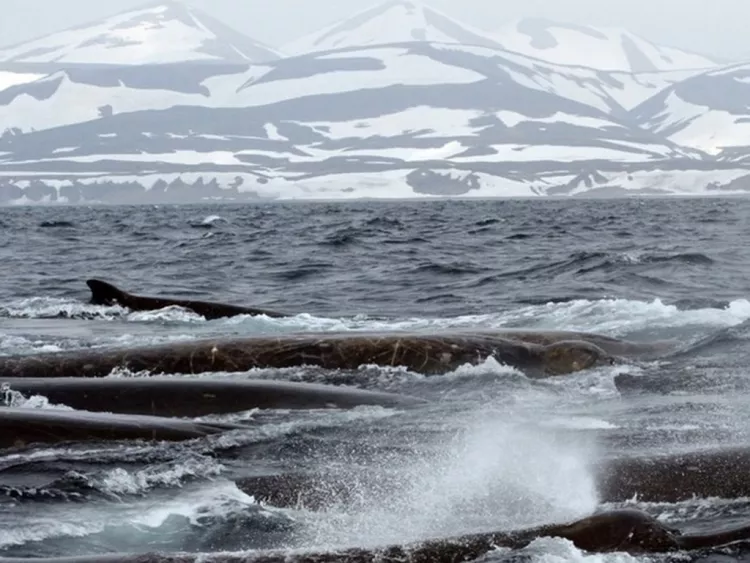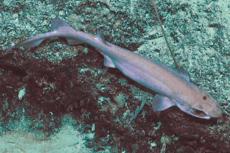Whale scars reveal social secrets
Baird's beaked whales discovered to form long-term alliances.
Scientists studying Baird's beaked whales have discovered they form long-term alliances. In findings published in the journal Marine Mammal Science, researchers who identified individual whales by scars on their bodies are calling for hunting of the species to be halted while more information is gathered about their complex social structure. Currently, they are hunted off northern Japan.
Sometimes called giant bottlenose whales, they spend relatively little time at the surface, regularly diving to depths of 1km for to 30 minutes. According to Erich Hoyt, head of the Whale and Dolphin Conservation and co-director of the Russian Cetacean Habitat Project, his team had followed the animals from spring to early autumn over four years.
Social insights
By cataloguing them based on each individual's scars, scientists were able to determine new social insights. Most striking were the formation of long-term relationships. The team discovered one alliance of two whales that were together four times - the animals were apparently repeatedly meeting up with one another over a period of more than three years.
The scars were concluded to be the result of drift nets and attacks by killer whales and cookie cutter sharks. "They're getting caught in nets, they're getting harpooned, so there's an international responsibility [for this species] that is getting overlooked at the moment,” said Hoyt. "And the fact that we're seeing these animals ranging [so far] means the hunting of Baird's beaked whales is something that should be managed internationally," he added.
According to International Whaling Commission (IWC), Baird’s beaked whales fell into "the category of small cetaceans (or toothed whales) rather than the so-called 'great whales'". Despite reaching lengths up to 13m, they currently do not come under the commission's obligations.
An IWC spokesperson said that member governments had been "debating for several years whether the organization’s regulatory mandate should be extended to small cetaceans". Japan's hunting of the species is subject to the country's own national regulations.
- Log in to post comments
























